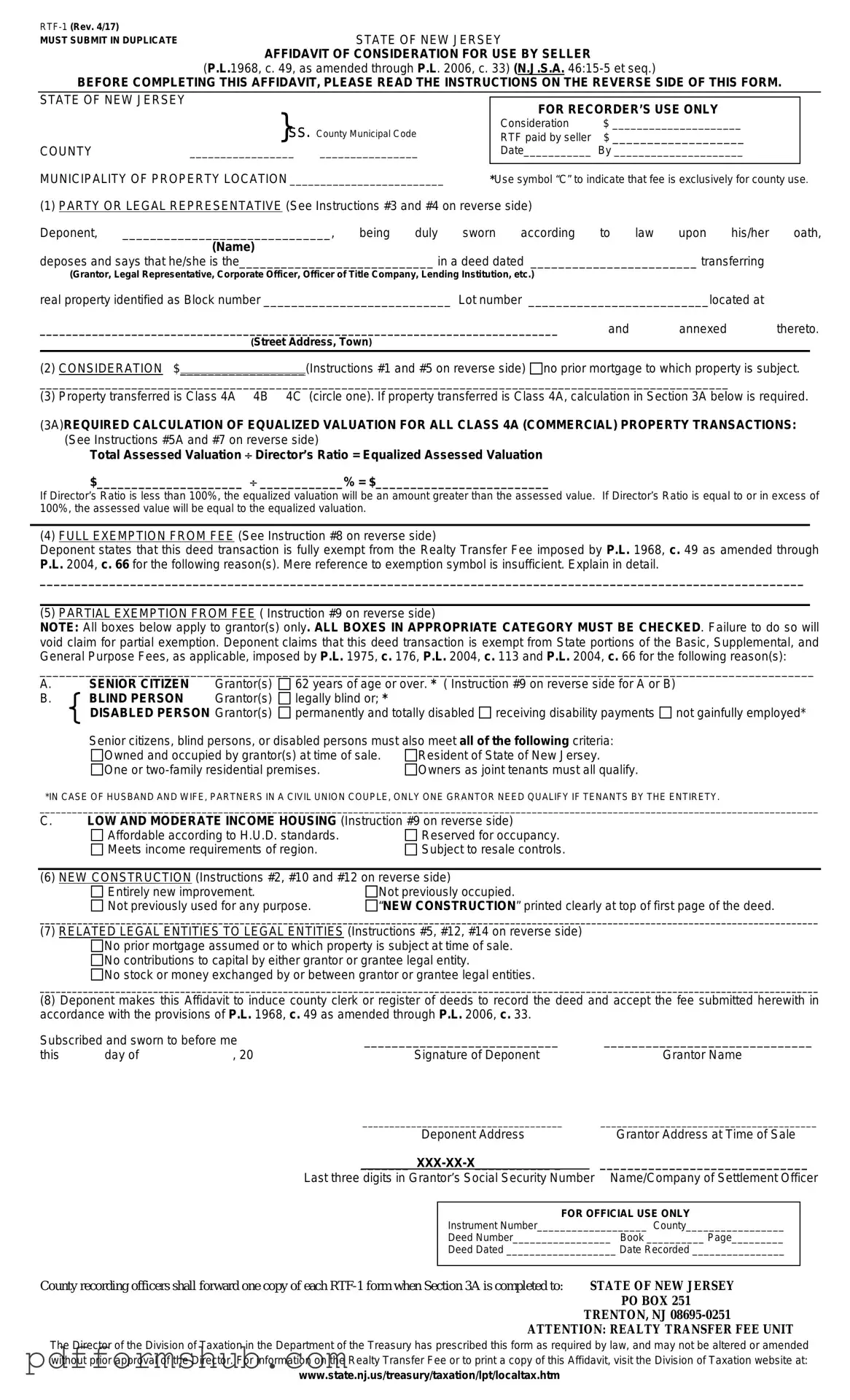Fill in Your New Jersey Affidavit of Consideration RTF-1 Form
The New Jersey Affidavit of Consideration RTF-1 form is a legal document used to disclose the consideration involved in a real estate transaction. This form is essential for ensuring transparency and compliance with state regulations. Understanding how to properly fill out the RTF-1 can help streamline the process of buying or selling property in New Jersey.
Ready to complete the form? Click the button below to get started.
Customize Form

Fill in Your New Jersey Affidavit of Consideration RTF-1 Form
Customize Form

Customize Form
or
Free PDF Form
Short deadline? Complete this form now
Complete New Jersey Affidavit of Consideration RTF-1 online without printing hassles.